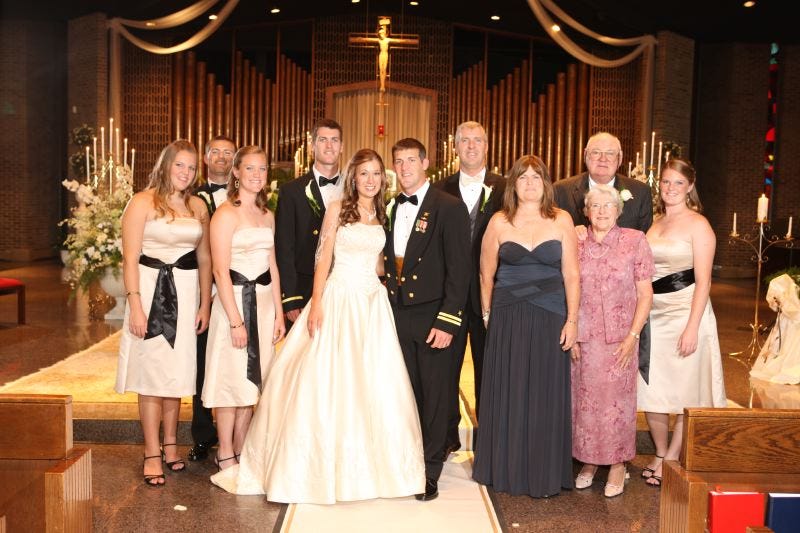
It was almost 11 years ago Amy Looney got the call that her husband had been killed in a helicopter crash in Afghanistan.
Brenden Looney, who was only 29 years old, was serving as a Navy SEAL and was expected to return home to San Diego from his tour just days before the crash in September 2010.
“The news was just life-changing and I was devastated,” Amy Looney said. “No one plans to have that news delivered. Being on the tail end of your spouse being gone, when you’ve made it 95 percent through the deployment, you never expect this to happen.”
Instead of homecoming preparation, Looney had to transition to funeral preparation.
For years, Looney didn’t recognize she had post-traumatic stress disorder.
“It was a pivotal moment,” she said. “I didn’t want to let the stigma of PTSD stereotype me but the truth is, when anyone goes through something traumatic, that’s how PTSD comes about. It’s triggered from a significant instance or circumstance.”
Amy and Brenden had been together for eight years.
“I don’t know if he ever realized how much he taught me and how much he helped me after his death,” she said. “He was just someone who encountered different challenges in life with determination.”
Looney said Brenden was the first colorblind Navy seal.
“He didn’t let what some people would consider a setback, hold him back,” she said. “I was always in awe of that. He taught me to have that mentality; to persevere.”
But it took Looney a while to come out of the fog after her catastrophic loss.
“A couple years after his death, I felt I was just checking off the box of things that I needed to do day-to-day and thinking ‘I just have to get through tomorrow,’” she said.
But after years passed, Looney got tired of feeling exhausted, sad, depressed, and not having the will to live a good life.
“It all comes down to your mindset. If you want something, you have to work hard and push harder; challenge yourself,” she said. “I remember thinking that I could either wallow in my own grief or pick myself up and live life to the fullest and I knew that’s what Brenden would have wanted from me.”
Looney said Brenden’s death taught her that she was a strong individual, and had the potential to be even stronger.
“You have to deal with PTSD, unpack all that comes with it. You can’t ignore it otherwise it won't go away,” she said.
Brenden’s death also taught her how to overcome challenges, and helped motivate her in ways that she never would have known if she hadn’t had a significant loss.
A big part of Looney continuing to strive today is that she has a support system.
“Whether it’s a friend or psychologist or family member, talk it out and have someone there that you can be open and honest with,” she said. “Many times it’s easier to internalize emotions, but once I started talking about what I was feeling, it became easier because I was saying it out loud.
“I know Brenden would be proud of me and how far I’ve come. I know and value the importance of getting another day of life and just like how Brenden wouldn’t let difficult obstacles get him down, I refused to let PTSD keep me down.”



